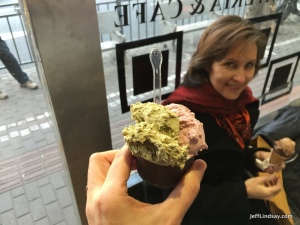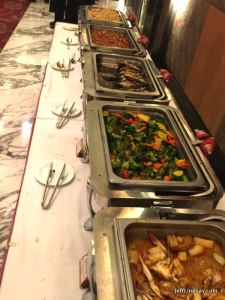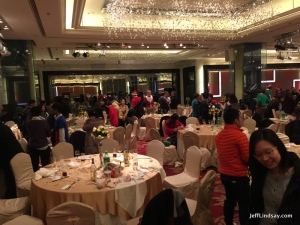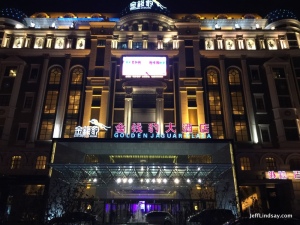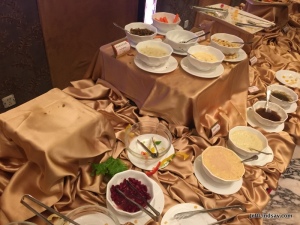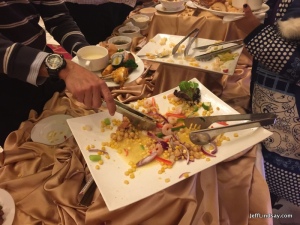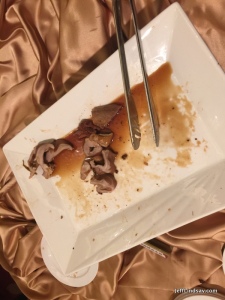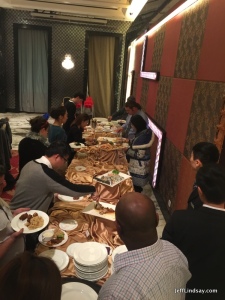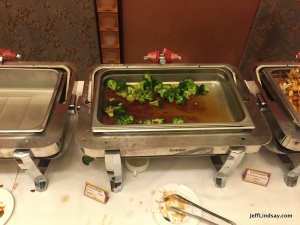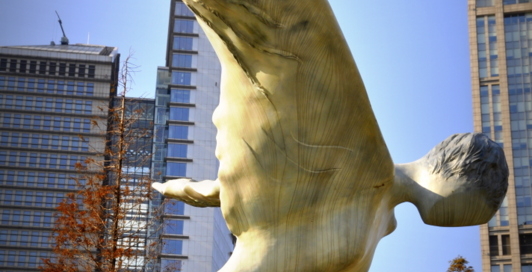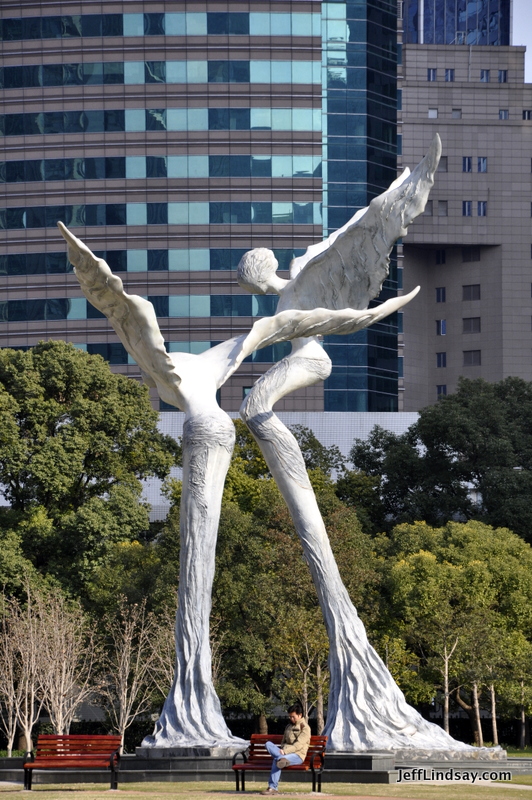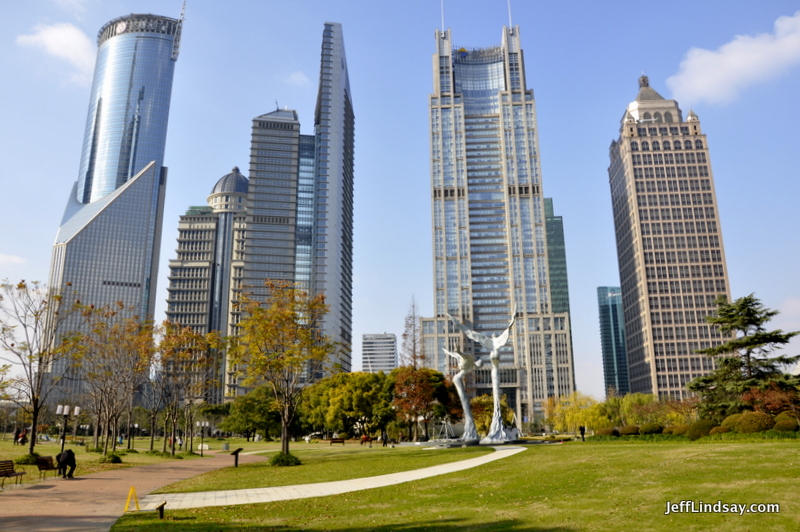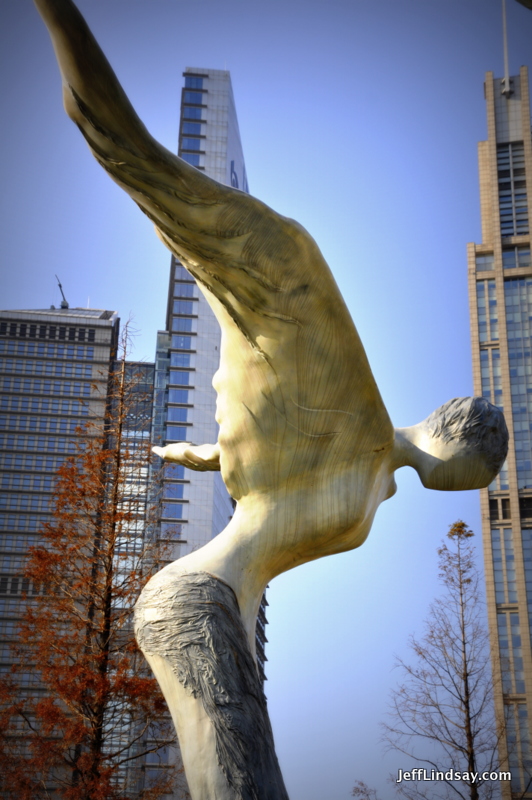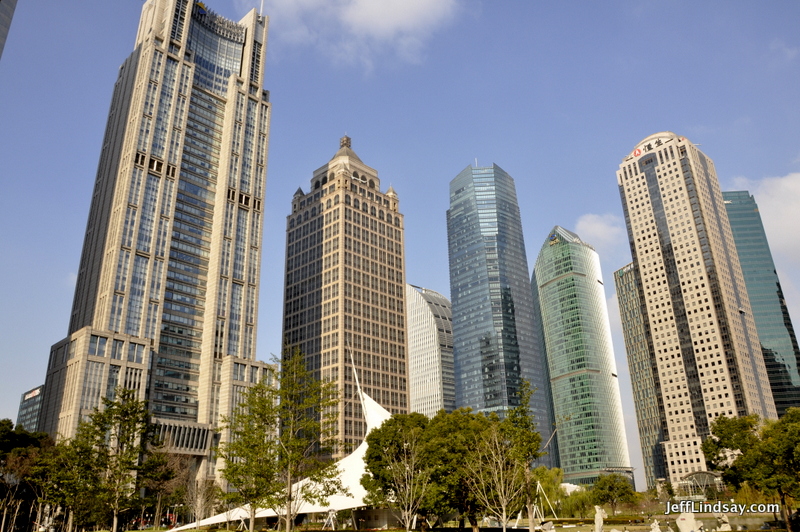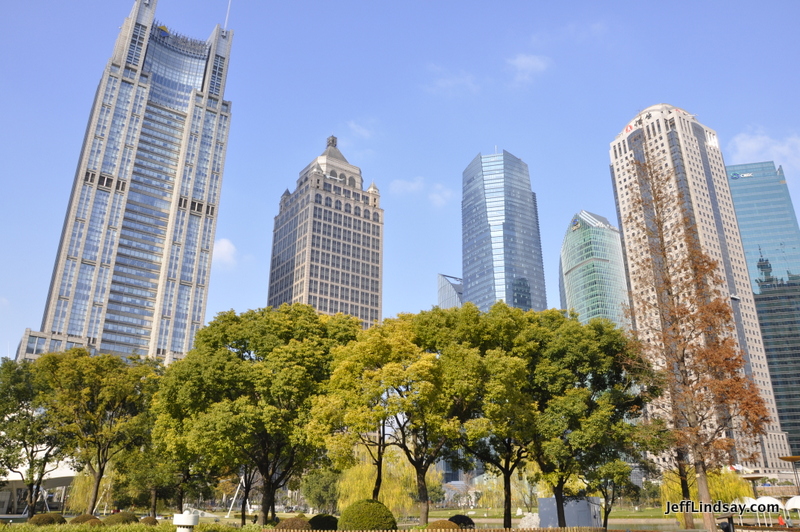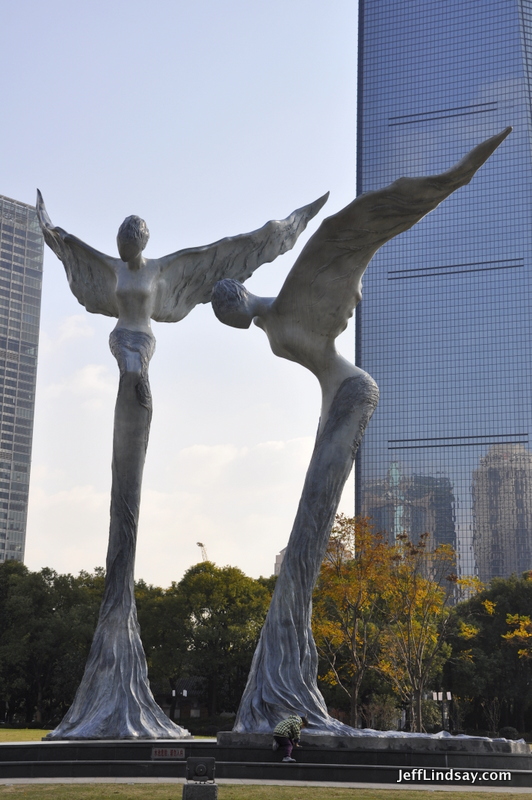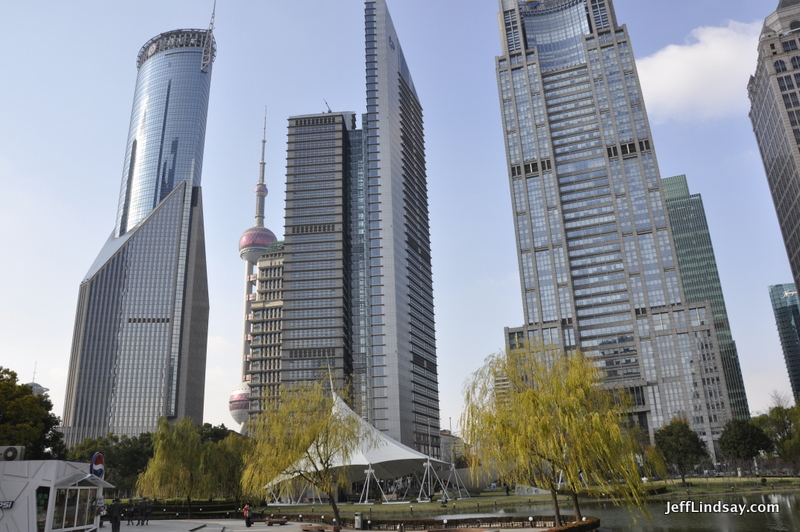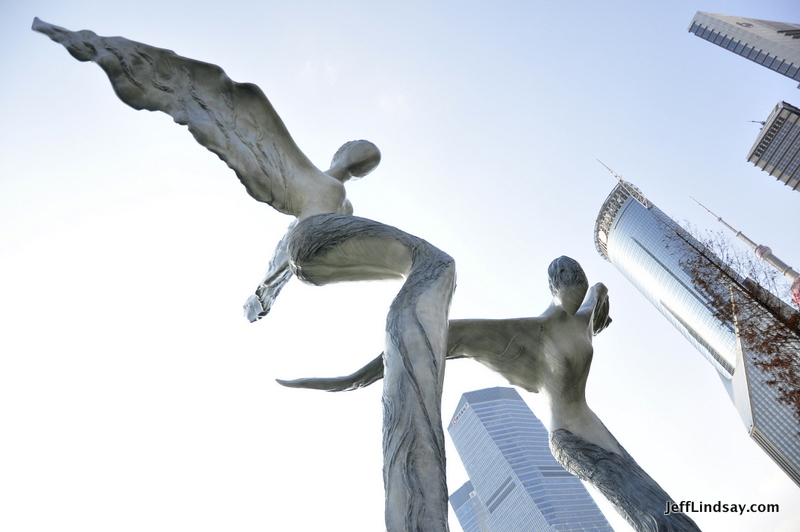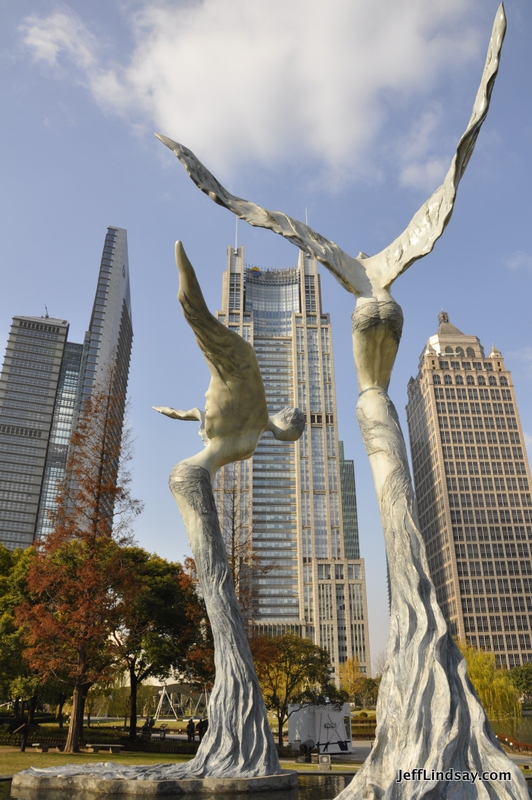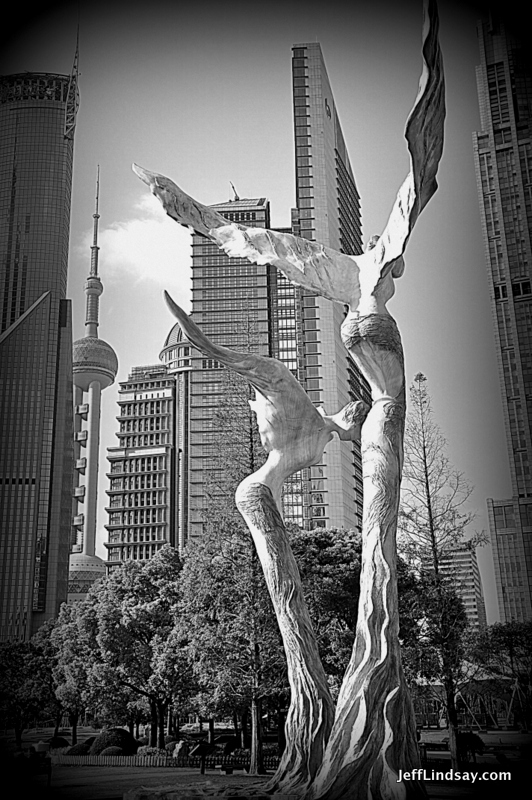Renting an Apartment in Shanghai: Some Practical Tips
We’ve lived in Shanghai for almost 5 years now and have rented four different places in this time (#4 about to start). Moving is a pain, but it’s given us some valuable experience. Here are some tips based on what we’ve seen.
Looking for apartments in Shanghai usually involves a real estate agent who will help you find an apartment. You’ll be asked to sign a one-year rental agreement. Anything less is difficult, but can be done with special arrangements, but only with a minority of landlords. Those needing an apartment for less than a year might try subletting a place listings at SmartShanghai.com or by personal connections with Shanghai residents willing to let someone use a room for a while.
You will need a lot of cash. In general, apartments are rented out one year at a time with contracts requiring one or two months’ rent as a deposit, and then upfront payment of the first two or sometimes three months of rent. This is a big surprise for many foreigners coming here, for it means that obtaining an apartment in one of the most expensive cities on earth will require at least three and usually four or five months of rent paid before you can even move in. In addition, you will also need to pay 35% of one month’s rent (typically, but be sure to check) as a fee to the real estate agent. (That may seem like a pretty steep fee for the work of signing you up for an apartment, but it’s actually worse than that because the landlord has to pay also, and the going fee now seems to be 100% of a month’s rent as payment from the landlord to the rental agency they signed up with.) Many foreigners coming here are shocked to see how expensive apartments are (e.g., often 2 or frequently even 4 times as much as in many US cities), and are even more shocked to see how much cash they have to provide in their first few weeks.
The company that brought you here typically won’t help with any of that upfront cash you need to pay. If they offer housing assistance, as many do, it comes in the form of a monthly stipend that will start after (maybe a month or even two after) you’ve paid all that cash and moved in. You will need to provide a fapiao (official government tax receipt) for the first month of rent from the landlord to your work and it must be listed with the exact name of your company (generally) in order for you to get reimbursed for one month of rent at a time.
For the process of finding the apartment, here are some tips:
First, if you don’t speak Chinese, bring or hire a Chinese-speaking friend to help you get the information you need. If you rely on rare English-speaking agents, your choices will be much more limited and it will be hard to find multiple agents covering a desired region, which is part of Tip #2 below.
Second, work with more than one real estate agent to find a place to rent. The listings from landlords are not all visible to every agent, so the perfect place for you might not be known to the first agent you work with. The quality and diligence of agents varies greatly. Most recently, for example, we started looking about seven weeks before our current contract ended. We had one agent we really liked who took us to a few places but then told us that we needed to wait a couple of weeks before we came back because landlords were not willing to sign a contract what would start in mid-June when it was only early May. But as we were saying good-bye to that agent, another one approached us on a street corner and said he could do better and that he thought it wasn’t too early too look. He worked hard to come up with some places where the landlord was somewhat flexible, and we soon found an ideal place that we’ll be moving into shortly. But during out search, we worked with three different agents, each with different listings and different strengths.
Third, be very clear about what you want and understand where you can compromise. Some people want to be up high enough to have very few mosquitoes. But if you could save 1000 RMB with a place on the first floor, could you cope by using bug zappers and mosquito netting over your bed? Do you really need two bathrooms? If you have lots of guests, this can be especially valuable. Understand how much space you need for the kitchen. Do you need an oven? Do you need a dryer? These are rare but some places have them. Understanding the difference between “nice to have” and “game over if I don’t have” is vital, because you are probably going to have make some compromises or pay a lot more than you want.
Fourth, generate lists of questions and issue to consider and discuss by visualizing details of your life when you are in an apartment you are considering. Look at the kitchen layout and consider how you would use it. Is the fridge too far away for practical work? Is there inadequate storage space? Obvious dangers? In other rooms, look at the electrical outlets and see if there are enough. See if windows can be closed and sealed off in winter to keep cold air from flowing through your home. See if air conditioners work, hot water flows, etc. Sit calmly and listen: is there lots of honking from street traffic, or are you in an peaceful place where you have a chance of getting decent sleep? Try out the furniture. Designed for someone half your size? Feel the bed. Rock hard? If reading is important to you, is there a comfortable place with decent lighting you can use? Look carefully at the neighborhood and the street you will live on. Is the traffic clogging the road all the time? Are there no taxis? Also, make sure your clearly understand if the quoted rent includes a fapiao (if you need two fapiaos, this could be trouble, and make sure that is clearly and plainly explained, and make sure you explain that you need real fapiaos, not fake ones–no kidding!). Ask if there are any extra fees you are responsible for. Will there be an installation fee to start Internet or TV service? Understand parking rules for you or for visitors.
Fifth, don’t trust everything you see or hear. Many online apartment listings rely on fake information to lure you in, and some agents you meet will feed you fake information to win you as a client. This fake information will be a listing that looks absolutely perfect, such as an ideal apartment in the place you want, in your budget, with loads of cute extras that make it seem like a real steal. When you call the agent to schedule a visit, you’ll find out that it has “just been sold.” That same apartment may end up “just being sold” over and over again. It may not even exist. I suggest not relying on that service or agency if they play that game. Further, real estate agents will often make statements when they don’t really know the answer. Be suspicious and ask how they know. Some agents, especially those working for firms that seem to be trying hard to push market prices higher, will quote you greatly inflated prices. Checking with multiple agents can give you a feel for what the real price should be for a given type of apartment.
Sixth, negotiate. Three times we have offered somewhat less than the asking price and had success, but if you ask for more than, say, a 10% reduction, you might not only get a rejection but find that the landlord is not willing to talk with you any more at all. But do negotiate, respectfully. In one place, we pointed out how terrible the furniture was and got the landlord to agree to lower rent if we scrapped some wasted furniture and bought our own instead of requiring the landlord to buy new items. We got 1000 RMB a month off our rent which quickly paid for the cheap used couches and a used bed we bought from expat friends who were moving back to the US. In another place, we got the landlord to buy an over for us if we would pay 500 RMB a month extra, which was fine with us–but in the end a bad deal for us because we stayed there two years, and an over costs about 5000 RMB. Oh well!
Seventh, allay landlord concerns. The visit to an apartment with a landlord present is a two-way interview. You are trying to find out if the landlord will be reasonable, but the landlord is keenly interested in seeing who you are. They have invested way too much money in this place and don’t want to lose it through a disastrous tenant. Dress nicely. Be on time. Be very pleasant and polite. Compliment the landlord on the things you see that are positives. Act like a considerate guest. The feeling they have about you can play an important role. They want responsible, trustworthy people who aren’t going to trash the apartment or sublet it to a tribe of party animals.
Eighth, once you’ve found the right place, be prepared for the closing. Find out if the landlord wants the upfront payments in cash or via an electronic deposit (credit cards often are not accepted for these kind of things). If you need, say, 40,000 RMB, realize that you can’t get all of that on one day from an ATM machine, but you can get it from a bank if you have an account there with that much in it. Otherwise you may need to have money wired to China from a US bank. Also as part of preparing for closing, ask the agent to get a copy of the contract to you before the closing so you can review it, and make sure it is in English and Chinese (but the Chinese terms will govern if there are any differences). If they have changed the agreed-upon terms or offer new unexpected conditions, be ready to walk. Also have someone who knows China and Chinese be there with you are at least available to help if there are any issues or questions. Inspect the apartment carefully and make sure agreed-upon repairs or changes have been done or are spelled out in the contract.
Ninth, prepare for moving out of your old place. Be sure to give your previous landlord plenty of notice (usually by 30 days or a month before the last day of your contract, you need to give written notice if you aren’t going to continue) and cooperate fully to help them sell the place. Keep it clean. Do your best to be thoughtful of your old landlord. While that’s just good human behavior, it also has a practical aspect: it may increase the chances of you getting your deposit back, or at least some of it. Sadly, some landlords make excuses and keep the deposit. We’ve had luck so far in getting our deposit back, though we have another deposit quest coming up soon. Wish us luck. Have an inspection meeting with your former landlord to review the apartment and see if there have been any unusual damages. It may be good to have photos of the place when you moved in and photos of the current place to show that you’ve taken good care. If you’ve spent money on repairs or other things, receipts will be helpful. You may need to prove that the furniture you wish to remove from the apartment is actually yours, since the door guards (“menwei”) at apartment complexes are trained to prevent theft from departing tenants and so will require conformation from the landlord for you to remove something you may own. Make sure you move on a day when the landlord is available by phone.
Tenth, when you move, take many precautions and get help. Hire movers to move your stuff if you have a lot, and watch over the process carefully. They may be fly-by-night and can damage many things. Work with them to protect whatever is really valuable or move it yourself. For special items like a piano, go to a piano shop and get their recommendation for skilled piano movers. Work with the agent and landlord to make sure that services like power, Internet, gas, etc. are operating when you move in. Be very careful not to damage walls, flooring, windows, or light fixtures as you move in. Make sure you have keys and understand how to enter the complex and the building (passwords, key tokens, etc.?).
It can be tiring, but with luck, you’ll have avoided major disasters and will find yourself in a pleasant new setting in one of the most delightful and beautiful cities on earth, Shanghai.



















